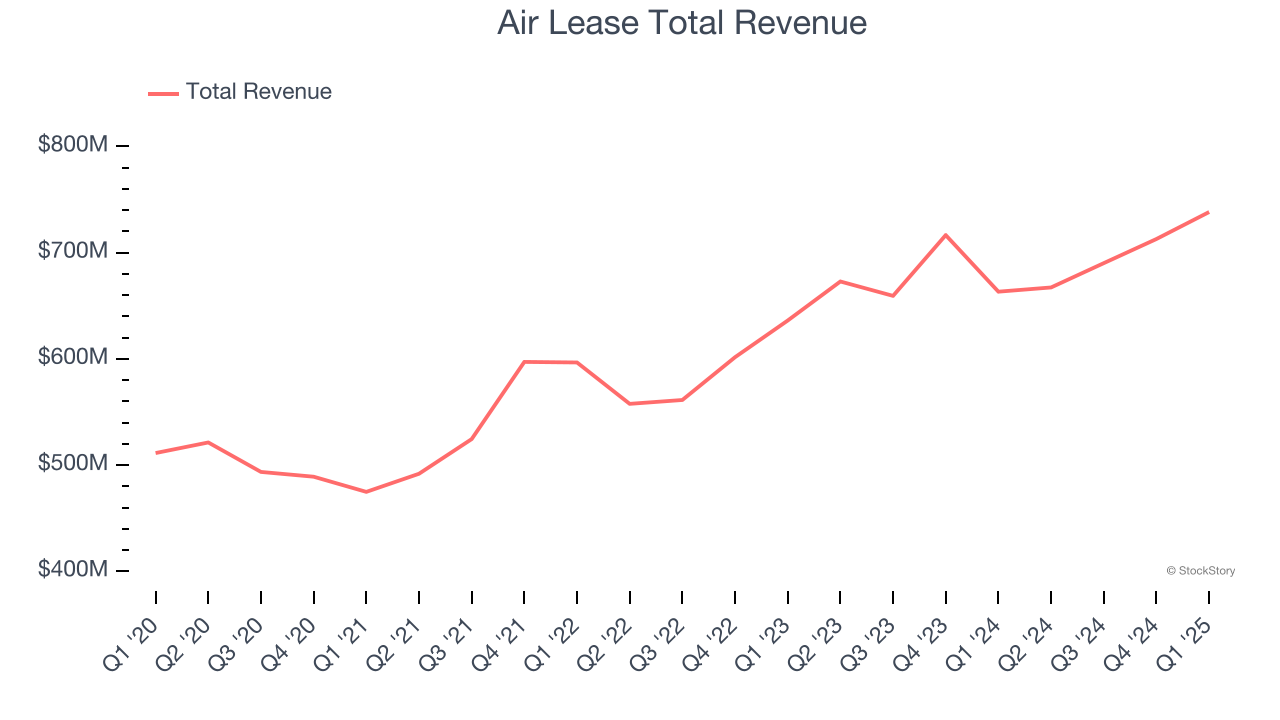
As the Q1 earnings season wraps, let’s dig into this quarter’s best and worst performers in the vehicle parts distributors industry, including GATX (NYSE: GATX) and its peers.
Supply chain and inventory management are themes that grew in focus after COVID wreaked havoc on the global movement of raw materials and components. Transportation parts distributors that boast reliable selection in sometimes specialized areas combined and quickly deliver products to customers can benefit from this theme. Additionally, distributors who earn meaningful revenue streams from aftermarket products can enjoy more steady top-line trends and higher margins. But like the broader industrials sector, transportation parts distributors are also at the whim of economic cycles that impact capital spending, transportation volumes, and demand for discretionary parts and components.
The 4 vehicle parts distributors stocks we track reported a satisfactory Q1. As a group, revenues beat analysts’ consensus estimates by 1.1%.
Thankfully, share prices of the companies have been resilient as they are up 9.7% on average since the latest earnings results.
Weakest Q1: GATX (NYSE: GATX)
Originally founded to ship beer, GATX (NYSE: GATX) provides leasing and management services for railcars and other transportation assets globally.
GATX reported revenues of $421.6 million, up 11% year on year. This print exceeded analysts’ expectations by 1.1%. Despite the top-line beat, it was still a slower quarter for the company with a significant miss of analysts’ EBITDA estimates.

Interestingly, the stock is up 4.6% since reporting and currently trades at $154.97.
Read our full report on GATX here, it’s free.
Best Q1: Air Lease (NYSE: AL)
Established by a founder of Century City in Los Angeles, Air Lease Corporation (NYSE: AL) provides aircraft leasing and financing solutions to airlines worldwide.
Air Lease reported revenues of $738.3 million, up 11.3% year on year, outperforming analysts’ expectations by 3.9%. The business had an incredible quarter with a solid beat of analysts’ EPS estimates and an impressive beat of analysts’ EBITDA estimates.

Air Lease delivered the biggest analyst estimates beat among its peers. The market seems happy with the results as the stock is up 21% since reporting. It currently trades at $59.
Is now the time to buy Air Lease? Access our full analysis of the earnings results here, it’s free.
FTAI Aviation (NASDAQ: FTAI)
With a focus on the CFM56 engine that powers Boeing and Airbus’s planes, FTAI Aviation (NASDAQ: FTAI) sells, leases, maintains, and repairs aircraft engines.
FTAI Aviation reported revenues of $502.1 million, up 53.7% year on year, falling short of analysts’ expectations by 2.1%. It was still a decent quarter as it posted an impressive beat of analysts’ EBITDA estimates.
FTAI Aviation delivered the fastest revenue growth but had the weakest performance against analyst estimates in the group. Interestingly, the stock is up 11.7% since the results and currently trades at $119.50.
Read our full analysis of FTAI Aviation’s results here.
Rush Enterprises (NASDAQ: RUSHA)
Headquartered in Texas, Rush Enterprises (NASDAQ: RUSH.A) provides truck-related services and solutions, including sales, leasing, parts, and maintenance for commercial vehicles.
Rush Enterprises reported revenues of $1.85 billion, down 1.1% year on year. This result topped analysts’ expectations by 1.4%. Taking a step back, it was a mixed quarter as it also logged EBITDA in line with analysts’ estimates but a slight miss of analysts’ adjusted operating income estimates.
Rush Enterprises had the slowest revenue growth among its peers. The stock is up 1.4% since reporting and currently trades at $51.74.
Read our full, actionable report on Rush Enterprises here, it’s free.
Market Update
Thanks to the Fed’s series of rate hikes in 2022 and 2023, inflation has cooled significantly from its post-pandemic highs, drawing closer to the 2% goal. This disinflation has occurred without severely impacting economic growth, suggesting the success of a soft landing. The stock market thrived in 2024, spurred by recent rate cuts (0.5% in September and 0.25% in November), and a notable surge followed Donald Trump’s presidential election win in November, propelling indices to historic highs. Nonetheless, the outlook for 2025 remains clouded by potential trade policy changes and corporate tax discussions, which could impact business confidence and growth. The path forward holds both optimism and caution as new policies take shape.
Want to invest in winners with rock-solid fundamentals? Check out our Strong Momentum Stocks and add them to your watchlist. These companies are poised for growth regardless of the political or macroeconomic climate.





